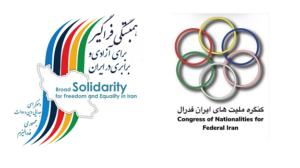President Barack Obama’s decision to strike al-Qaeda backed jihadists alongside the Islamic State could unite two extremist organisations, writes Ruth Sherlock.
When the United States and its international coalition of allies made good on their threat to bomb Syria this week, it came with a twist.
The barrages of Tomahawk missiles and air strikes by F-22 Raptors didn’t just target the Islamic State of Iraq and the Levant, the jihadist power that President Barack Obama has vowed to “degrade and ultimately destroy”.
The bombs also struck the bases and hideouts of Jabhat al-Nusra, an extremist group with affiliations to al-Qaeda, which has been proscribed as a terrorist organisation by the US.
If we are going to bomb one jihadist group in Syria, we might as well bomb them all – or so the thinking in the White House may have gone.
In a statement on Tuesday, the Pentagon gave a more nuanced account, explaining that it had targeted a wing of Jabhat al-Nusra called “Khorasan”, whose members were foreign jihadists, who, the US claimed, had been plotting attacks against western targets.
However, this distinction will have little meaning to most Syrians – who have largely never heard of the Khorasan group, perceiving only that the US also attacked Jabhat al-Nusra.
And, whilst from Washington, Isil and Jabhat al-Nusra may seem to be two sides of the same evil, in Syria, bombing one group or the other produces dramatically different outcomes.
The decision to expand the air campaign to include Jabhat al-Nusra could backfire in its intent, paradoxically, strengthening the very jihadists that the US and its allies have set out to annihilate.
Jabhat al-Nusra enjoys much more popular support in Syria than Isil. Its emirs (leaders) have worked hard to win the hearts and minds of Syrians in towns and cities where they have a presence.
In Aleppo, for example, the group’s “humanitarian department” have established a distribution system that supplies heavily subsidised bread stocks to needy families across the city.
Attacking Jabhat al-Nusra therefore, will only alienate the Syrian population, who, terrified of living under US and allied bombardment, already by and large share little sympathy for the foreign campaign.
One of the biggest inhibitors to the jihadists’ hegemony over rebel-held Syria has been the splits and factional infighting among its own.
In February this year, al-Qaeda formerly disassociated itself from Isil, announcing, in a statement made by the group’s General Command that it did “not have an organisational relationship” with the organisation. The statement marked the first time al-Qaeda has formerly repudiated an affiliate.
Since the split (when some of its most extreme members defected to Isil) Jabhat al-Nusra has by and large behaved in a manner less radical than its al-Qaeda banner implies.
A largely home grown organisation, most of its fighters are Syrians who have not been indoctrinated with the radicalism of those practising international jihad. Their main focus is domestic.
Many of its units have even fought alongside some of the more moderate rebel groups – some of who are receiving western supplied weapons – in military battles against the regime of President Bashar al-Assad.
As one of the biggest and best armed groups in the country – and with expertise in car and suicide bombing – its fighters have often dealt the winning blow in these joint operations.
Bombing Jabhat al-Nusra as well as Isil will destroy this unusual status quo, and instead, likely push Jabhat al-Nusra into a reconciliation with its more radical jihadist counterpart.
In a development true to the old adage that one’s enemy’s enemy is a friend, there are already the beginnings of a rapprochement between the two factions. Some Jabhat al-Nusra fighters have defected to Isil and, in the northeastern province of Deir al-Zour there are rumours of a prisoner swap between the two groups.
Source: The Telegraph.
















